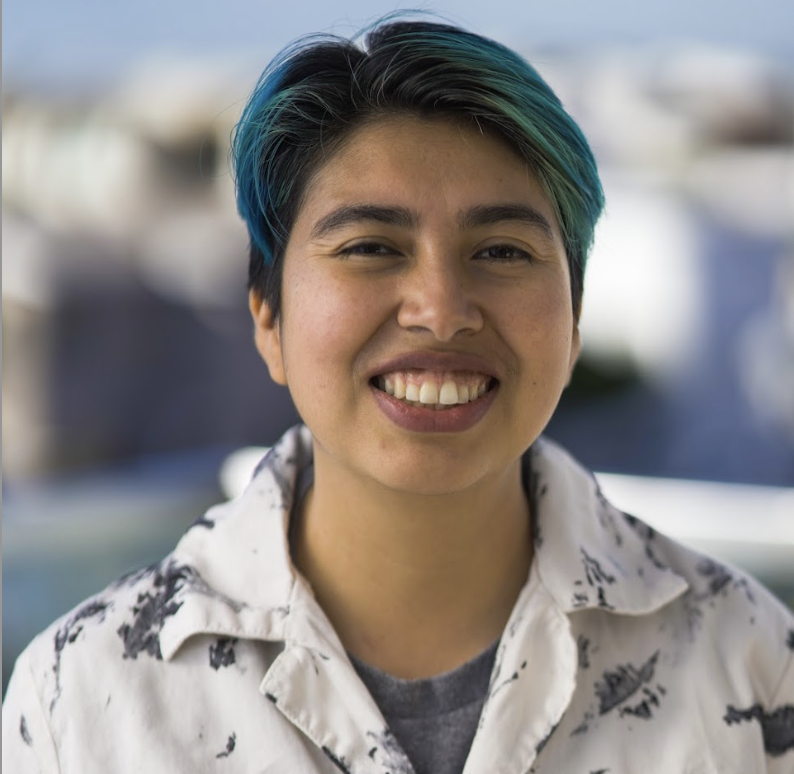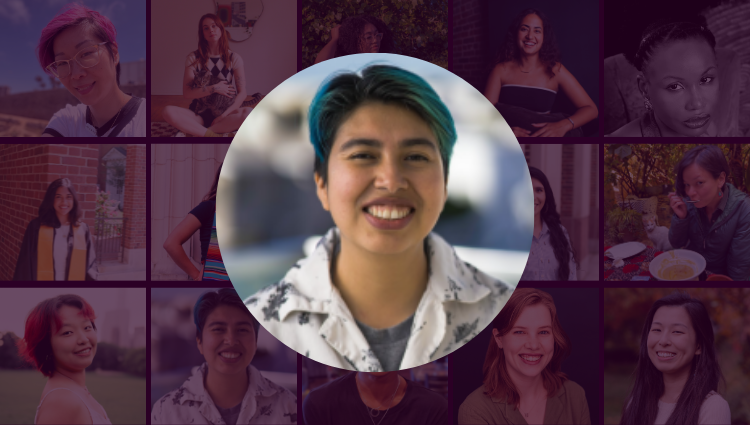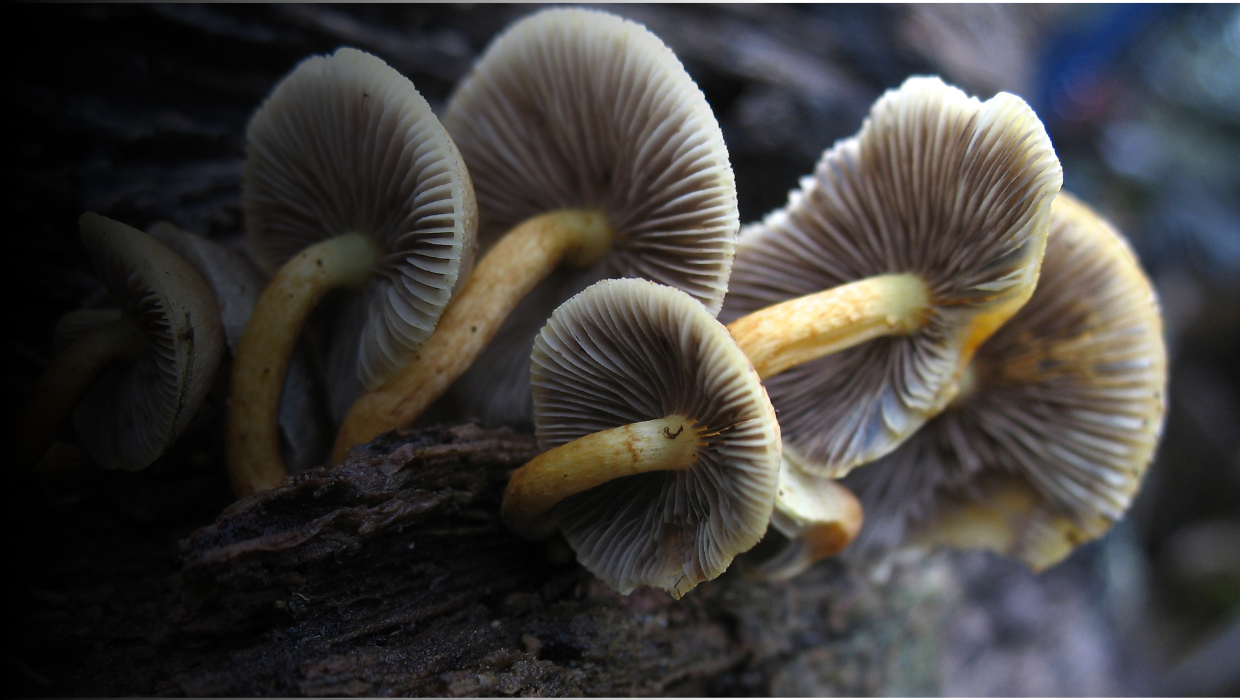Kitzia Esteva was one of our 2024 Digital Residents. As a part of this program, we do Q&As with our residents to feature them, their work, and their words. See our Q&A with Kitzia below, and explore more Spotlights here.
TSW: Tell us about your work, writing, or project. What are you writing these days? How is your work changing, and how is it changing you?
Kitzia Esteva: In June 2022, speaking about the power of fiction to change the world, my mentor, Ploi Pirapokin, shared that the brain uses the same neuropathways for reality input and imagination. She said storytelling can get people to consider possibilities for alternative realities. I have been obsessed with this theory about the power of storytelling ever since!
Stories about tragedy, dystopia, and apocalypse abound. But there is less abundance of utopia and triumph when people face a deep crisis. Through my writing, organizing, and cultural work, I want to inundate the world with stories where people grow and persevere. I want to invite people to imagine the possibilities of their actions in collective resilience. I am writing a short story series called Webbings of Care and Affection, which reflects my vision and the echoes and visions of many grassroots leaders who wish to see the world transform in our lifetime. The book is an ode to our historical urgency and protagonistic capacity to birth “a world where many worlds are possible,” as the Zapatista saying goes.
I am writing as an indigenous person who sees magic, faith, and storytelling as life-giving and transformative forces. The short stories in the series range from climate change resilience to restorative and transformative justice, battling mental health, agroecological food justice, and reproductive rights. My writing aims to agitate organizers to live our visions. I want to uplift oppressed communities’ resiliency and depict collective care and utopic praxis aimed at building a world where we reorganize our resources, care, and labor toward justice and thriving. My work is agitational and energized toward transformation and hope—I build worlds deeply rooted in liberation and decolonial imaginings.
TSW: What is a question you’re asking yourself these days, and what’s a question you or your work is asking of your reader?
KE: How do we get out of this mess? I am saying “we” because I think without practicing collectivity in all the ways we live, and with all the species and places in our planet then we can get out of any mess. I say “we” because we need to steward and we need to be accountable to one another. As for “this mess,” the mess is define by an individualist logic that allows parasitic capitalism to survive while it depletes and sickens all our systems. This mess is the colonialist impositions I see in my homeland, the genocide in Gaza, Sudan, the Congo. This mess is the ways in which we deny our own humanity and the vicious cycle of short term survival —based on our exploitation and earth’s extraction that is simultaneously leading to our extinction. I am asking how over and over again. Not because I pretend to know the answers. But because I think we need to rescue our stories’ resilience and our accumulation of knowledge, especially indigenous and grassroots feminist knowledge, if we are to survive. I think at its heart, story telling leads us to think with our entire nervous system, with our emotional intelligence. Story telling, language and books, those are tools necessary for our evolution. Questions are necessary for our evolution and thinking, dreaming, grieving and responsibilizing as a we is how we might be able to answer those questions.
TSW: Who do you bring into the room with you when you write, and/or, who do you consider your work to be in conversation with? Who are you writing for?
KE: This is a tough question for me. I write to the universe within me first. I write to my inner child in all their gentle and traumatize existence. I write to my community(ies). I don’t know why I write sometimes. I just pray that my ancestors are with me when I do. I write to the future, from a place of deep faith that there is a future to write to. That our predecessors need the stories to keep moving.
TSW: What were you processing during our residency program? Did anything unlock for you? If so, what new entrance did you find for your work or for yourself as a writer in the world? And what caused that shift?
KE: There was a session on our collective journal that asked what I was writing about and these 3 lines came up:
I am writing about the untold victories
I am writing about how we grow jawed edges
I am writing about softness too
As a community organizer, I don’t always lean into softness as a skill. Softness, gentleness, warmth, grace, buoyancy are parts of my personality and how my beloved late nephew Chuy faced the world. I am writing a novel in verse about him. And I am being transformed into a gentler version of a warrior. One that uses the pen daily. One that smiles and dances and bobs their head at any drumming.
idly in practice.
TSW: What’s a mantra or motto that you have in mind these days when you are writing or creating? Is there a writing routine or ritual that keeps you beginning?
KE: “Another world is not only possible. She is on her way.” — Arundathi Roy
I love that writing is always about learning and discovering. I am passionate about beginner’s mind. I listen to guided meditations on beginner’s mind so I can ground in wonder and exploration and to stay free from freezing under perfectionism, ego or executive dysfunction.
I take walks, I take naps with my kittens or just contemplate them in their pleasurable sleep.
TSW: What is something that someone said — a fellow resident, a past mentor, perhaps something from one of the bonus sessions — that helped change the way you see your writing or work?
KE: The messay! OMG how did I go into a rabbit hole with that one.
I am working on this and who knows how long it will take me to complete it but a little entry gem from the collective journal:
“In feminist economics, we talk about the concept of reproductive labor. It’s the labor that makes all other forms of labor possible. It’s the work that sustains society, what’s at the fabric. The connective tissue of everything. Possibly also the nervous system of society.
Cleaning. It’s a labor of love. Living in filth is a sign of depression. Or a sign of uncontrolled ADHD symptoms or CPTSD in crisis. Or a sign of self-flagellation, self-debasement, and self-hate.
What is a mess is also a sign of self-preservation. Self-defense even?”




